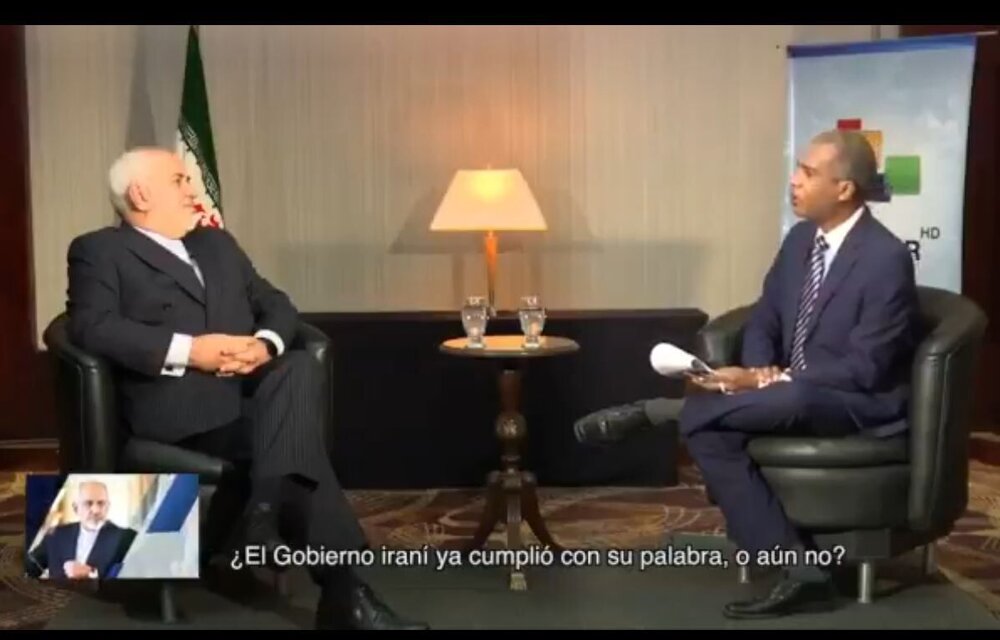Nuclear deal was not just between Tehran, Washington: Zarif

TEHRAN — Foreign Minister Mohammad Javad Zarif said on Friday that Washington decided to withdraw from the Iran nuclear deal on its own will and predicted it would seek certain concessions at the negotiation table if it decides to return to it.
“The important point is that the JCPOA was not a deal just between Iran and the U.S.,” Zarif told the Telesur television network, IRNA reported.
Zarif, who is on a Latin American tour, said since the Joint Comprehensive Plan of Action (JCPOA) is part of a UNSC resolution, the U.S. was never entitled to withdraw from it.
Therefore, he continued, if the U.S. basically wanted to free itself from the deal, it had to exit the United Nations as well.
In order to address the commotion created by the United States and its allies over the Islamic Republic’s nuclear program, after nearly 12 years of talks Tehran signed the nuclear deal with six world powers in July 2015. Under the deal, Iran agreed to limit its nuclear activities in exchange for a termination of sanctions.
However, in May 2018, Trump withdrew the U.S. from the deal, officially called the Joint Comprehensive Plan of Action (JCPOA), and restored the sanctions on Iran and added new harsh ones. Trump’s move drew worldwide criticism.
Commenting on the French government's so-called support for freedom of expression, Zarif said attacking others in the name of freedom of expression is vividly a hypocritical approach at a time that France’s administration does not allow its citizens to make the smallest criticism over certain issues.
He doubted the truth of freedom of expression in France when Muslim women in the country are not allowed to wear hijab at schools.
On his three-nation tour to Latin America, Zarif has already visited Venezuela and Cuba. Bolivia is his next destination.
Zarif was also asked about the U.S. assassination of top Iranian general Qassem Soleimani on January 3 this year and Iran’s promise of vengeance, to which he said Iran in a military move targeted the U.S. base from which the assassination was directed.
But the important issue is that the U.S. has committed a serious crime, consequences of which hit the U.S. and will continue to do so, as seen in the funeral ceremony of General Soleimani in Iran and Iraq, he said.
Zarif added that another consequence of the crime was the adoption of a legislation by the Iraqi parliament which asks the U.S. to pull out its forces from the country, which will be very costly for the U.S.
Regarding the recent terrorist attacks in France and some other European countries, Zarif said Islam has nothing to do with terrorism and a president of a civilized country should not try to connect Islam with terrorism.
MH/PA
